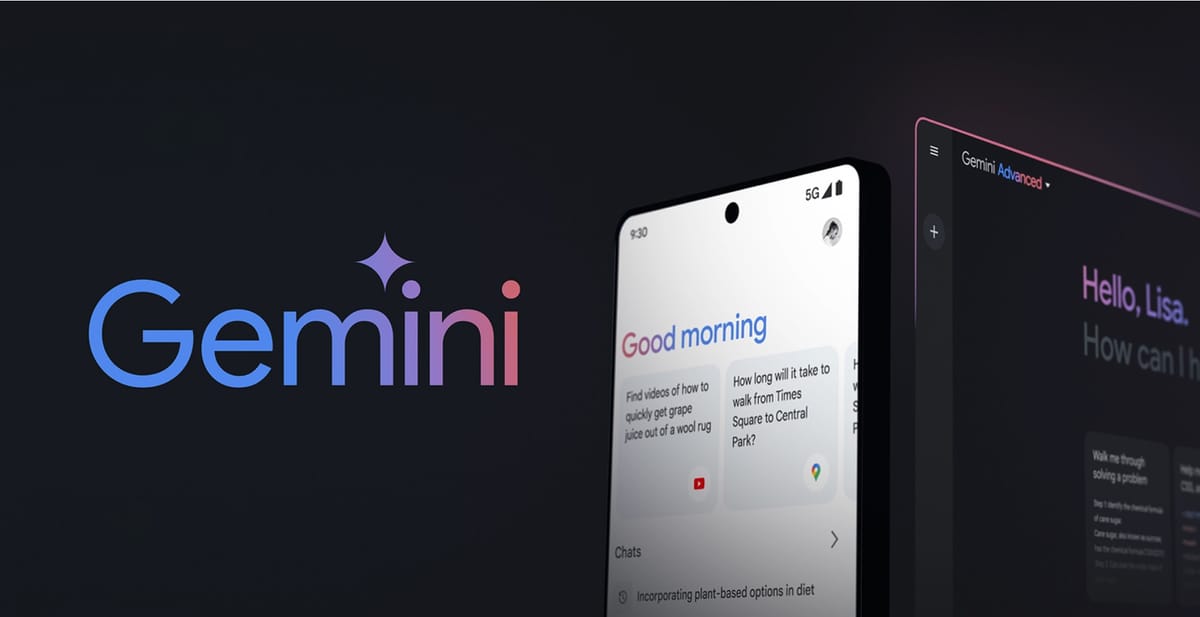
Google will replace its long-standing Google Assistant with Gemini on mobile devices later this year, marking the end of an era for the company's original voice assistant.
Key Points
- Classic Google Assistant will no longer be accessible on most mobile devices later this year
- Google will upgrade tablets, cars, and connected devices like headphones and watches to Gemini
- A new Gemini-powered experience is coming to home devices including speakers, displays, and TVs
- Gemini app is now available in over 40 languages across more than 200 countries
Google is officially sunsetting its iconic Google Assistant on mobile devices later this year, the company announced Friday. The move caps a remarkable transition that began nearly a decade ago when Google first introduced its voice-controlled helper to the world.
In a blog post, Brian Marquardt, Senior Director of Product Management for the Gemini app, confirmed what many industry watchers have anticipated: "Over the coming months, we're upgrading more users on mobile devices from Google Assistant to Gemini; and later this year, the classic Google Assistant will no longer be accessible on most mobile devices or available for new downloads on mobile app stores."
The shift represents Google's firm pivot toward generative AI as the foundation for its assistant strategy. While Google Assistant pioneered natural language processing and voice recognition when it launched in 2016, the company is betting that Gemini's advanced AI capabilities will deliver a more powerful and versatile experience.
"We're in the midst of another platform shift — this time, generative AI is transforming the way we interact with technology," Marquardt wrote. "To continue our work of building the world's most helpful assistant, we've reimagined the experience with AI at its core to make Gemini your personal, AI-powered assistant."
The transition won't be limited to smartphones. Google also announced plans to bring Gemini to tablets, cars, and devices that connect to phones, such as headphones and watches. A new Gemini-powered experience is also being developed for home devices like speakers, displays, and TVs, though Google Assistant will continue operating on these platforms until the transition.
Google claims the move comes in response to positive feedback from users who have already made the switch. According to Marquardt, millions of people have transitioned from Google Assistant to Gemini, and "they are telling us how helpful the new, AI-powered features are in their daily lives."
The company has been steadily expanding Gemini's footprint, with the app now available in more than 40 languages across over 200 countries. Recent updates have focused on incorporating popular Assistant features like playing music, setting timers, and taking actions from lock screens — addressing functionality gaps that early adopters had identified.
But Google is emphasizing that Gemini's capabilities extend "far beyond" what Google Assistant could do. Features like Gemini Live for multimodal conversations and Deep Research, which transforms Gemini into a "personal research assistant," showcase capabilities "only possible with AI," according to the company.
The announcement marks a significant milestone in Google's AI strategy, as it fully commits to generative AI as the foundation for its assistant services. For users accustomed to saying "Hey Google" to interact with their devices, the coming months will bring a fundamental shift in how they access Google's help — and perhaps, a glimpse into the next generation of AI assistants.

